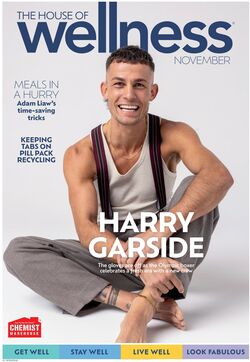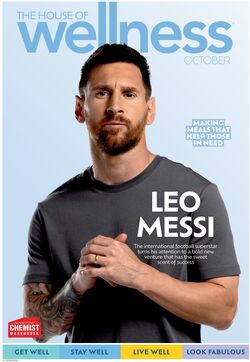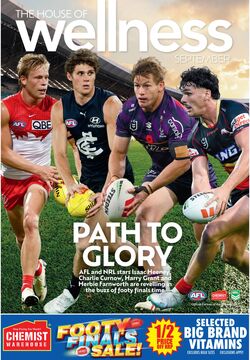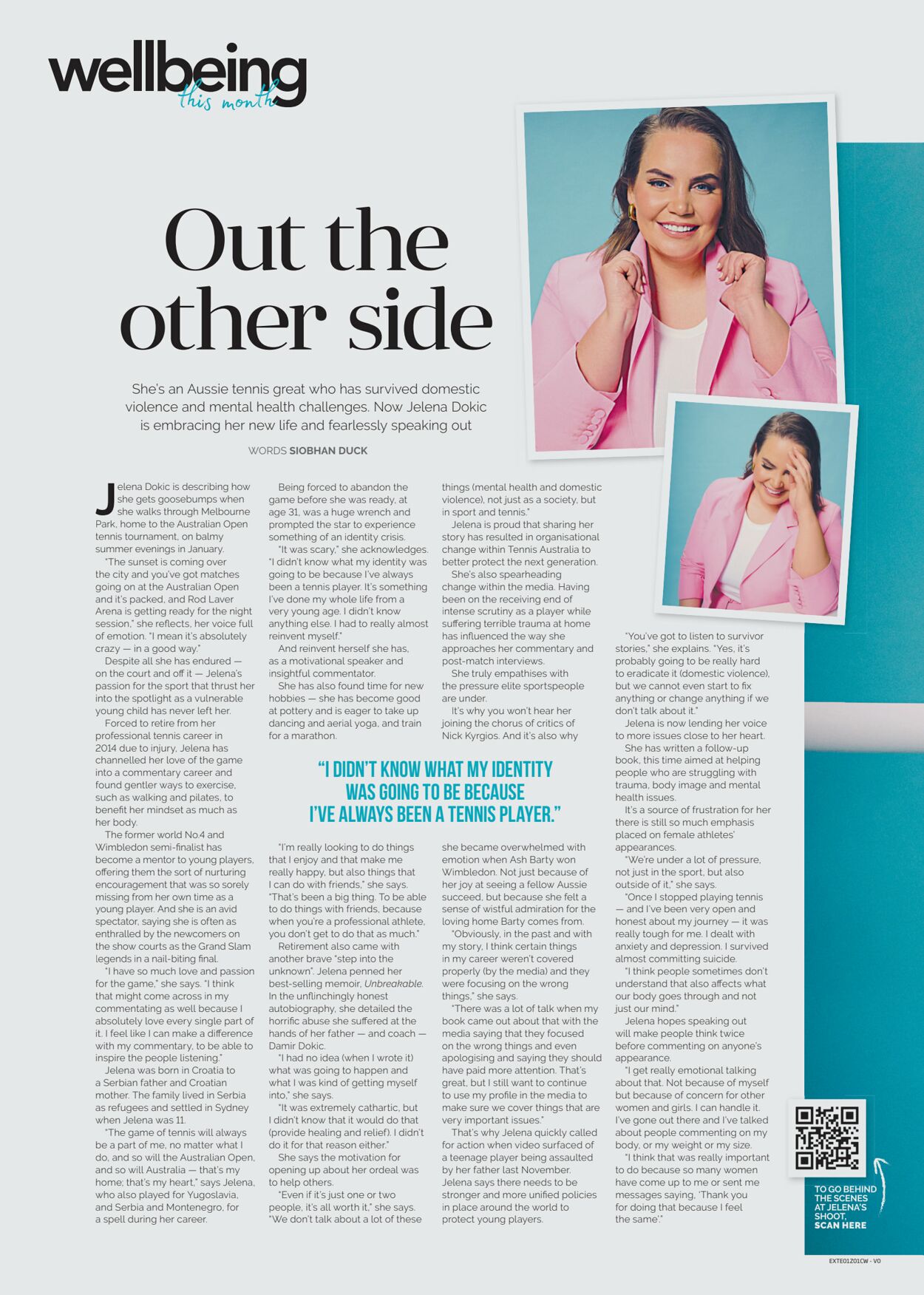













Products in this catalogue
wellbeing Out the other side She's an Aussie tennis great who has survived domestic violence and mental health challenges. Now Jelena Dokic is embracing her new life and fearlessly speaking out WORDS SIOBHAN DUCK she gets goosebumps when she walks through Melbourne Park. home to the Australian Open tennis tournament, on balmy ‘summer evenings in January. “The sunset is coming over the city and you've got matches going on at the Australian Open and it's packed. and Rod Laver ‘Arena is getting ready for the night session’ she reflects, her voice full of emotion. "| mean it's absolutely crazy — ina good way” Despite all she has endured — ‘on the court and off it — Jelena’s passion for the sport that thrust her into the spotlight as a vulnerable young child has never left her. Forced to retire from her professional tennis career in 2014 due to injury, Jelena has channelled her love of the game into a commentary career and found gentler ways to exercise, such as walking and pilates, to benefit her mindset as much as her body. The former world No4 and ‘Wimbledon semi-finalist has become a mentor to young players, offering them the sort of nurturing ‘encouragement that was so sorely missing from her own time as a young player. And she is an avid spectator, saying she is often as enthralled by the newcomers on the show courts as the Grand Slam legends in a nail-biting final “Ihave so much love and passion for the game.’ she says. I think that might come across in my ‘commentating as well because | absolutely love every single part of it | feel like I can make a difference with my commentary. to be able to inspire the people listening” Jelena was born in Croatia to Serbian father and Croatian mother. The family lived in Serbia as refugees and settled in Sydney when Jelena was 11 “The game of tennis will always be a part of me, no matter what | do, and so will the Australian Open, and so will Australia — that's my home: that's my heart, says Jelena ‘who also played for Yugoslavia, and Serbia and Montenegro. for a spell during her career. J elena Dokic is describing how Being forced to abandon the game before she was ready. at age 31, was a huge wrench and prompted the star to experience something of an identity crisis. “Itwas scary’ she acknowledges “I didn't know what my identity was going to be because I've always been a tennis player. It's something Ive done my whole life from a very young age. | didn't know anything else. | had to really almost reinvent myself” And reinvent herself she has, as a motivational speaker and insightful commentator. She has also found time for new hobbies — she has become good at pottery and is eager to take up dancing and aerial yoga. and train fora marathon, things (mental health and domestic violence), not just as a society, but in sport and tennis” Jelena is proud that sharing her story has resulted in organisational change within Tennis Australia to better protect the next generation, She's also spearheading change within the media, Having been on the receiving end of intense scrutiny as a player white suffering terrible trauma at home has influenced the way she approaches her commentary and post-match interviews. She truly empathises with the pressure elite sportspeople are under. It's why you won't hear her Joining the chorus of critics of Nick Kyrgios. And it's also why | DIDN'T KNOW WHAT MY IDENTITY WAS GOING TO BE BECAUSE I'VE ALWAYS BEEN A TENNIS PLAYER.” ‘Im really looking to do things that | enjoy and that make me really happy. but also things that can do with friends” she says “That's been a big thing, To be able todo things with friends, because ‘when you're a professional athlete, you don't get to do that as much” Retirement also came with another brave ‘step into the unknown’, Jelena penned her best-selling memoir, Unbreakable, In the unflinchingly honest autobiography, she detailed the horrific abuse she suffered at the hands of her father — and coach — Damir Dokic. “Ihad no idea (when | wrote it) what was going to happen and \what | was kind of getting myself into, she says. “it was extremely cathartic, but didn't know that it would do that (provide healing and relief), | didn't do it for that reason either” She says the motivation for ‘opening up about her ordeal was to help others. “Even if t's just one or two people, it's all worth it’ she says "We don't talk about a lot of these she became overwhelmed with ‘emotion when Ash Barty won Wimbledon. Not just because of her joy at seeing a fellow Aussie succeed, but because she felt a sense of wistful admiration for the loving home Barty comes from. "Obviously, in the past and with my story, | think certain things in my career weren't covered property (by the media) and they ‘were focusing on the wrong things” she says. “There was a lot of talk when my book came out about that with the media saying that they focused ‘on the wrong things and even apologising and saying they should have paid more attention, That's great, but | still want to continue to use my profile in the media to make sure we cover things that are very important issues” That's why Jelena quickly called for action when video surfaced of a teenage player being assaulted by her father tast November. Jelena says there needs to be stronger and more unified policies in place around the world to protect young players. “You've got to listen to survivor stories,” she explains, “Yes, it's probably going to be really hard to eradicate it (domestic violence’, but we cannot even start to fix anything or change anything if we don't talk about it” Jelena is now lending her voice to more issues close to her heart. She has written a follow-up book, this time aimed at helping people who are struggling with trauma, body image and mental health issues, It's a source of frustration for her there is still so much emphasis placed on female athletes’ appearances, "We're under a lot of pressure, not just in the sport, but also outside of it she says. "Once | stopped playing tennis —and I've been very open and honest about my journey — it was really tough for me. | dealt with anxiety and depression. | survived almost committing suicide. “Ithink people sometimes don't understand that also affects what our body goes through and not Just our mind” Jelena hopes speaking out will make people think twice before commenting on anyone's appearance. “I get really emotional talking about that. Not because of myself but because of concer for other women and girls. can handle it. I've gone out there and I've talked about people commenting on my body. or my weight or my size. “I think that was really important to do because so many women. have come up to me or sent me messages saying, ‘Thank you for doing that because | feel the same’” Roel) ries peta rors Rona
| Name | Details |
|---|